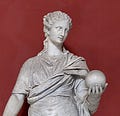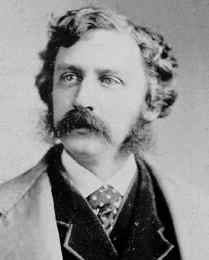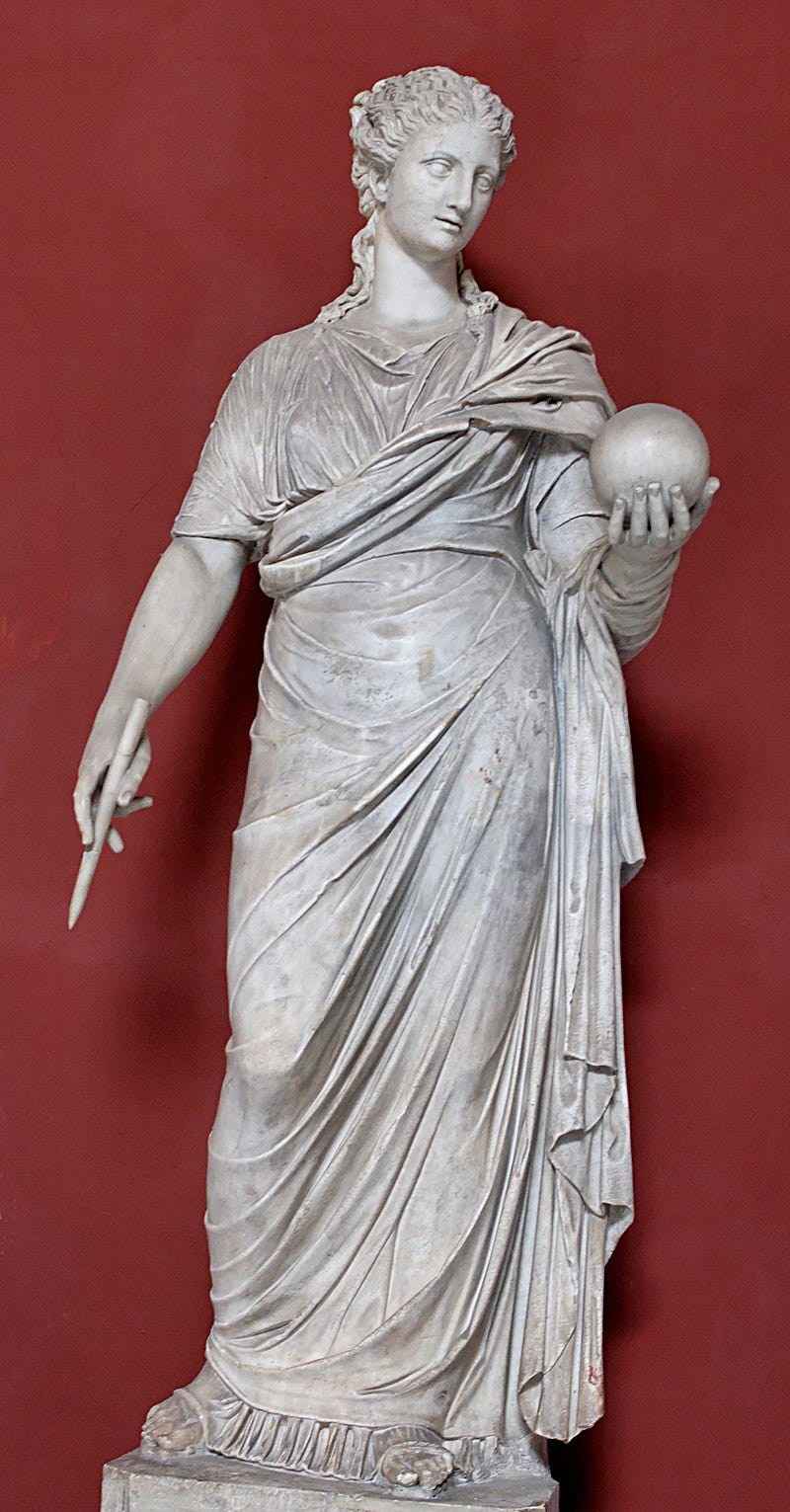No Niche? No Problem.
This nineteenth-century writer had a clear niche and some "viral" successes but neglected the most important question: Why?
Smart advisers agree that best way to start a newsletter business is to define a clear niche that readers care about. That advice has been sound for three hundred years, according to last week’s post. And yet, not every writer wants to occupy a niche or communicate with readers according to a business plan.
“No more squeezing myself into other people’s molds,” insisted
recently at , in words that could be a manifesto for other niche-resistors: “I’ll make it as me or not at all.” has taken a similar stand. “Choosing a niche would be to close off myself from my art,” he wrote earlier this month. renewed the subject with these questions for her readers:How often do you set aside your chosen interest and go for something else, just because you feel like it? Do you think about your readers when you go there or is it enough that you’re satisfied? Do you explain when you do it? Do you apologize? Is this even important?
Last week in this series, we turned back the calendar pages to learn that a clear niche has long been a successful business model for writers. This week, another biography reveals what’s missing from the niche model. A writer with a unique offering and even a few big successes that today we call “viral” has no assurance of long-term security in the absence of one question that niche-resistors tend to ask: Why?1
In 1870-1871, a poem by a California author went viral (for those days), and the author found himself an international celebrity, suddenly in demand for his unique product of dialect writings from frontier California. He had an original niche and the attention of the public. But quickly, fame and fortune left as easily as they came, leaving the writer anxiously scrambling for paying work.
No one had ever encouraged Bret Harte to articulate the “enduring why” of his career, to borrow a phrase from
. Harte got the fame and fortune he wanted, but neither endured long.Bret Harte’s Story
For just a year, 1872, Bret Harte was the best-paid and most fêted author in America. Between 1868 and 1870, he had published a handful of stories in a San Francisco magazine with a unique combination of humor, western dialect and scenery, and a brisk new style that delighted readers accustomed to long sentences. A Boston publisher offered to collect his stories into a book. He wrote a poem in dialect that got copied in newspapers around the country and in England — he “went viral,” 1870-style. Less than a year-and-a-half later, he was on a train with his wife and two young sons, met as a celebrity author all the way from San Francisco to Boston, where he had a contract to write exclusively for the prestigious and well-paying Atlantic Monthly family of magazines.
He had started in literature fourteen years earlier, at the age of twenty-one, with as vague and flimsy a hope as any new writer. On New Year’s Eve, he confided in his journal:
In these 365 days I have again put forth a feeble essay toward fame and perhaps fortune.—I have tried literature albeit in an humble way—successfully—I have written some poetry: passable and some prose (good) which have been published. … Therefore I consecrate this year or as much as God may grant for my service—to honest heartfelt sincere labor and devotion to this occupation.—God help me—may I succeed.
Despite mention of the Divinity, the young man venturing into literature thought only of his “labor,” his “heartfelt” intention, and some vague idea of success as fame and fortune. He became a writer because he felt “fit for nothing else.”2
In 1868, as he took the helm of a new literary magazine, still Harte resisted the impulse to utter goals or ideals. The publisher slapped a mission statement on the cover page, “Devoted to the development of the country,” but Harte held his editorial function aloof from the business side of the magazine. His tone was urbane, informed, detached, and witty, as when he quipped in the second number, “It is hard to add to the business of business the business of pleasure” (“Etc.,” August 1868, p. 190).
From his growing portfolio of witty stories and dialect poems, the one that attracted the most attention was just the sort of thing that would go viral for a person working the treadmill of day-to-day deadlines and bills without a larger sense of purpose except to do his best and possibly acquire fame.
“Plain Language from Truthful James” is a notorious poem in American literary history. In it, two California working men lose at cards to a Chinese character named Ah Sin. When Bill Nye is out-cheated at his own game, he lunges violently for his cannier opponent. The speaker, “Truthful James” is ungrammatical and self-righteous in his racism — a type of uncouth American that Harte would satirize many times. He begins and ends the poem with the same complacent prejudice and demeaning language for Ah Sin. When the poem went viral, new readers had no idea this was satiric.3 They accepted the perspective of the uncouth speaker as a distinctive American voice.
Despite Harte’s intention to satirize the California Workingmen’s Party, which was organizing in favor of Chinese Exclusion, Harte could not help the initial explosion of the poem as a newspaper reprint or the unauthorized editions or the adoption of the phrase “Heathen Chinee” as an expression of Anglo-American racial condescension or the misappropriation of his poem in a Congressional debate arguing in favor of limits on Chinese immigration.
Harte could have come out publicly against the uptake of the poem into national racial discourse. He did not. He could have refused to profit from further printing of it. He did not. Representing for outside readers the culmination of Harte’s unique niche of western dialect writing, the viral poem gave him the fame and fortune he had sought, and he accepted the result.
Harte is not the first or last writer to be overtaken by fame without a sense of any larger purpose than getting there. The point is not to pass judgment on Harte individually. It is to slow down and think critically and quietly about the purpose of filling a niche or reaching for readers in the first place. The point is to observe what happens when fame precedes the author’s reflection on the long-range, satisfying purpose that will outlast the whims of popular opinion.
By 1873, Harte’s reputation began to turn. His publisher was disappointed in the work received during the contract year; Harte defended it. Harte placed work with other magazines but not so lucratively as in that guaranteed contract. He tried lecturing, playwriting, collaborating with his old western friend Mark Twain. Fractures grew in that relationship when Harte had to borrow money. Like any freelancer, he had some wins, some losses. He and his wife had two more children.
In 1878, with more losses than wins, Harte’s darkening stories introduced plots of adultery, fraud, and suicide. At last he was granted a consular appointment in Germany with a regular salary. He moved to Europe, leaving his family in America. From Germany and Scotland he would send consular money back to his wife, and in England, later, he would hire a literary agent and discover that regularity and security were more comfortable than his early goals of fame and fortune. His last years as an admired American expatriate writer in England were mostly satisfying, filled with friends, comforts, walks, and the cigars that gave him throat cancer.
We can read the many uncomfortable chapters of Bret Harte’s biography as consequences of an artist developing skills and a solid niche and achieving fame before he considered what it would mean to reach his goals. Aside from the money that might come and go, why write? Why reach for readers?
“Because I must” got Bret Harte to the top of his profession, but it did not prepare him for what to do at the summit.
Writing with a mission
You can probably think of writers you know with more abiding missions. Perhaps you are one of them. One of the clearest examples that I know is the English poet John Milton, writing Paradise Lost. Milton had an ambition even loftier than Bret Harte’s. He too cared about fame and fortune, but he cared more about telling the epic creation of the world and fall of humanity with moral truth in the service of his Christian faith. At the outset of all twelve books of his epic poem, Milton pauses to ask for help from Christian and classical spirits, to focus attention on his mission and not be distracted or overwhelmed by the scope of it, or temptations to shorter-term success.
In Book VII, he is preparing to narrate the creation of Earth when he calls upon the muse of astronomy and the heavens, Urania, to “govern [his] Song.” He knows perfectly well that Urania has nowhere near the TikTok or Instagram following of “Bacchus and his Revellers.” But to write of heaven, the most appropriate choice is a heavenly muse. He trusts Urania to find him a “fit audience,” “though few,” because what good would it do to rack up a million Likes and Shares if he fell short of faithfully describing the movement of God in the world? Milton’s top priority was not to court a large audience but to write a divine poem (Paradise Lost, Book VII, lines 30-31, 33).
As you know, an audience did find its way and still finds its way to admire Milton’s double dose of mission and craft.
For an example closer to our time, Rabbi Danya Ruttenberg recently moved her newsletter from Substack to another platform. Her mission for Life Is a Sacred Text had been to “say true things, with ancient stories serving as mirrors and lights.” With the move, she acknowledged that she was getting close to the age at which her mother died. She asked, “What feel[s] like the work that is uniquely mine, and undone?”
That is a question of mission.
Dear reader, I cannot tell you if I have a niche, but I know I want Milton and Rabbi Danya, not poor, talented Bret Harte for my guides. I want to ask myself again and again, as Milton does in every book of Paradise Lost, why I’m writing and who my best companions and inspirations are.
A “fit audience” of any size for any writer is a gift ranking almost (but not quite) as high as our abiding “why.”
P.S. Lest this article be understood as a wholesale criticism of Bret Harte, an innovator of the short story form who wrote “The Luck of Roaring Camp,” “Tennessee’s Partner,” “Miggles,” and other masterful tales and sketches, and who has received criticism both just and unjust, please refer to another of my posts about Bret Harte, here, which is closer to my assessment of his significance as a writer. Though I champion Harte in the scholarly world, his career nonetheless offers a cautionary tale of a writer’s relationship with fame.
Gary Scharnhorst, Bret Harte: Opening the American Literary West (University of Oklahoma Press, 2000), p. 11.






Harte was one of the early masters of the American short story, writing well-regarded pieces such as "The Luck of Roaring Camp" and "The Outcasts Of Poker Flat" that accurately depicted the California in which he grew up in.
Thank you, Tara, for this thoughtful introduction to Harte -- and for making the idea of the unending conversation real here on Substack! What a privilege to be in dialogue about this essential question.
I did not realize that Harte's fame came from a misunderstanding. How ironic -- and going along with it, just because the fame seemed like his ticket through the gate, surely must have felt like a self-betrayal. Money and fame really mess with us. This story has been told countless times in biopics of musicians, hasn't it? The garage band that gets the record contract, and then is held hostage to the brand that the record company wants, rather than to their own creativity.
Forgive me for my cynicism, but this is why I cannot join the Taylor Swift bandwagon. There is no "why" larger than herself, her brand in its ascendancy, her market share. At least Kurt Cobain ruminated on the grossness of being "stupid and contagious" (the quest for "virality" is explicitly the desire to be contagious with no sense of Cobain's irony, isn't it?).
I love your contrasting example of Milton. And I'd offer Gillian Welch's "Everything Is Free Now" as another: "Someone hit the big score / they figured it out -- / That we're gonna do it anyway / even if it doesn't pay."
https://www.youtube.com/watch?v=wFle2YoQwWg&t=5s